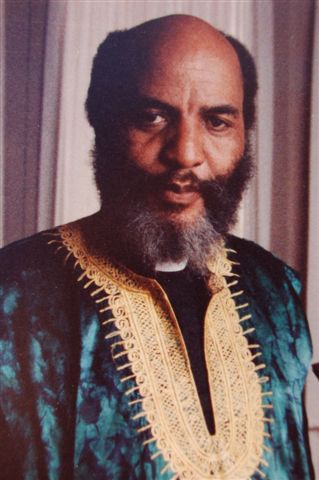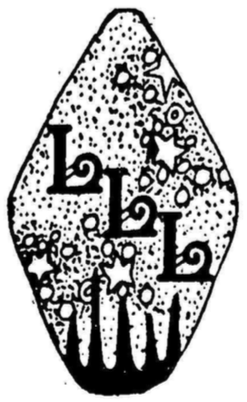
A social movement is a loosely organized effort by a large group of people to achieve a particular goal, typically a social or political one. This may be to carry out a social change, or to resist or undo one. It is a type of group action and may involve individuals, organizations, or both. Social movements have been described as "organizational structures and strategies that may empower oppressed populations to mount effective challenges and resist the more powerful and advantaged elites". They represent a method of social change from the bottom within nations. On the other hand, some social movements do not aim to make society more egalitarian, but to maintain or amplify existing power relationships. For example, scholars have described fascism as a social movement.

A protest is a public expression of objection, disapproval, or dissent towards an idea or action, typically a political one. Protests can be thought of as acts of cooperation in which numerous people cooperate by attending, and share the potential costs and risks of doing so. Protests can take many different forms, from individual statements to mass political demonstrations. Protesters may organize a protest as a way of publicly making their opinions heard in an attempt to influence public opinion or government policy, or they may undertake direct action in an attempt to enact desired changes themselves. When protests are part of a systematic and peaceful nonviolent campaign to achieve a particular objective, and involve the use of pressure as well as persuasion, they go beyond mere protest and may be better described as civil resistance or nonviolent resistance.

The 1999 Seattle WTO protests, sometimes referred to as the Battle of Seattle, were a series of anti-globalization protests surrounding the WTO Ministerial Conference of 1999, when members of the World Trade Organization (WTO) convened at the Washington State Convention and Trade Center in Seattle, Washington on November 30, 1999. The Conference was to be the launch of a new millennial round of trade negotiations.
The Miami model are the tactics employed by coordinated law enforcement agencies during demonstrations in Miami, Florida relating to the negotiations for the Free Trade Area of the Americas (FTAA) trade agreement in November 2003. The same tactics were first developed and tested at the 2000 Republican National Convention in Philadelphia, Pennsylvania under the direction of John Timoney, who served as police chief to Philadelphia during the RNC and Miami during the FTAA.
Direct Action Network (DAN) was a North American confederation of anti-corporate, anti-authoritarian and anarchist affinity groups, collectives, and organizations. It grew out of the Seattle chapter which had been formed to coordinate the nonviolent civil disobedience portion of the anti-WTO mobilization in Seattle in 1999.

A fare strike is a direct action in which people in a city with a public transit system carry out mass fare evasion as a method of protest. Jumping turnstiles, boarding buses through the back or very quickly through the front, and leaving doors open in subway stations are some tactics used. In some cases, transit operators obstruct the fare box to prevent anyone from paying. Often, fare strikes are used to protest against fare hikes and service cuts, but they can also organize solidarity between riders and drivers.

The Really Really Free Market (RRFM) movement is a horizontally organized collective of individuals who form a temporary market based on an alternative gift economy. RRFM events are often hosted by people unaffiliated with any large organization, and are encouraged to sprout up by anyone, anytime, anywhere. The RRFM movement aims to counteract capitalism in a proactive way by creating a positive example to challenge the questioned myths of scarcity and competition. The name Really Really Free Market is itself a play on words as it is a reinterpretation and re-envisioning of the term free market, which generally refers to an economy of competition governed by supply and demand. The RRFM holds as a major goal to build a community based on sharing resources, caring for one another and improving the collective lives of all. Markets often vary in character, but they generally offer both goods and services. A RRFM usually takes place in an open community space such as a public park or community commons.

The 4th Summit of the Americas was held at Mar del Plata, about 400 km (250 mi) southeast of Buenos Aires in Argentina, on November 4–5, 2005.

James Luther Bevel was an American minister and leader of the 1960s Civil Rights Movement in the United States. As a member of the Southern Christian Leadership Conference (SCLC), and then as its Director of Direct Action and Nonviolent Education, Bevel initiated, strategized, and developed SCLC's three major successes of the era: the 1963 Birmingham Children's Crusade, the 1965 Selma voting rights movement, and the 1966 Chicago open housing movement. He suggested that SCLC call for and join a March on Washington in 1963 and strategized the 1965 Selma to Montgomery marches which contributed to Congressional passage of the 1965 Voting Rights Act.

A political demonstration is an action by a mass group or collection of groups of people in favor of a political or other cause or people partaking in a protest against a cause of concern; it often consists of walking in a mass march formation and either beginning with or meeting at a designated endpoint, or rally, in order to hear speakers. It is different from mass meeting.
The Spring Mobilization Committee to End the War in Vietnam, which became the National Mobilization Committee to End the War in Vietnam, was a coalition of American antiwar activists formed in November 1966 to organize large demonstrations in opposition to the Vietnam War. The organization was informally known as "the Mobe".
Mass mobilization refers to mobilization of civilian population as part of contentious politics. Mass mobilization is defined as a process that engages and motivates a wide range of partners and allies at national and local levels to raise awareness of and demand for a particular development objective through face-to-face dialogue. Members of institutions, community networks, civic and religious groups and others work in a coordinated way to reach specific groups of people for dialogue with planned messages. In other words, social mobilization seeks to facilitate change through a range of players engaged in interrelated and complementary efforts.

Theaters Against War (THAW), was a coalition of theaters and volunteer theater artists organized to protest the Iraq War and the perceived concomitant restrictions on civil liberties in the US. As of November 2007, THAW had more than 250 member theaters, largely in New York City, but with some representation through the United States and abroad.
The Free Fare Movement is a Brazilian social movement that advocates the adoption of free fares in mass transit. The movement was founded in a session during the Worldwide Social Forum in 2005, in Porto Alegre, and gained prominence for its participation in the planning of the 2013 Brazilian protests.

The anti-globalization movement, or counter-globalization movement, is a social movement critical of economic globalization. The movement is also commonly referred to as the global justice movement, alter-globalization movement, anti-globalist movement, anti-corporate globalization movement, or movement against neoliberal globalization. There are many definitions of anti-globalization.
Autoreduction is an anti-capitalist and collective practice by a group of people to impose a lower price for a product or service until it is free. A group of consumers take upon themselves to reduce the price of some good or service, and act collectively. This could include collectively engaging in shoplifting, avoiding paying transit fares or for movie tickets, or calling in sick for work. The targeted service or product is generally considered by activists as being essential and should be available on an equal basis to all people. Critics of autoreduction do not distinguish between this practice and criminal theft or robbery.
The Tallahassee bus boycott was a citywide boycott in Tallahassee, Florida, that sought to end racial segregation in the employment and seating arrangements of city buses. On May 26, 1956, Wilhelmina Jakes and Carrie Patterson, two Florida A&M University students, were arrested by the Tallahassee Police Department for "placing themselves in a position to incite a riot". Robert Saunders, representing the NAACP, and Rev. C. K. Steele began talks with city authorities while the local African-American community started boycotting the city's buses. The Inter-Civic Council ended the boycott on December 22, 1956. On January 7, 1957, the City Commission repealed the bus-franchise segregation clause because of the United States Supreme Court ruling Browder v. Gayle (1956).

Heather Booth is an American civil rights activist, feminist, and political strategist who has been involved in activism for progressive causes. During her student years, she was active in both the civil rights movement and feminist causes. Since then she has had a career involving feminism, community organization, and progressive politics.

Lincoln Legion of Lesbians (LLL) was a lesbian feminist collective in Lincoln, Nebraska, that sought to destigmatize lesbianism and build lesbian community. The collective sponsored community events open exclusively to women and girls, advocating feminist separatism.










